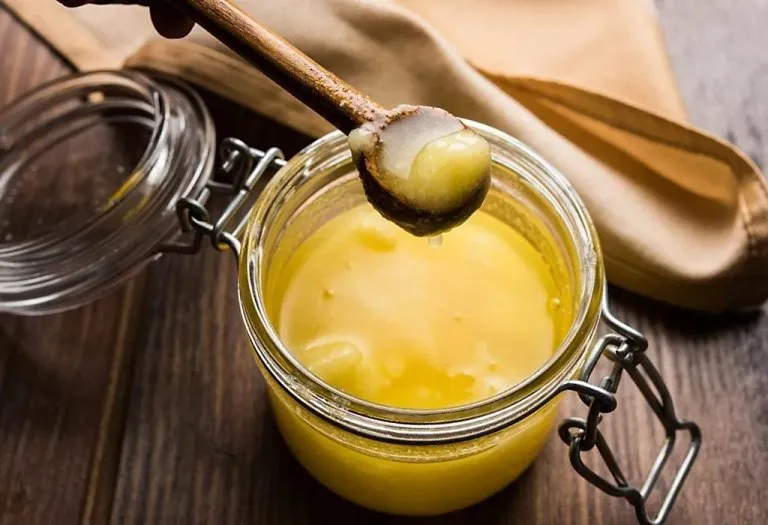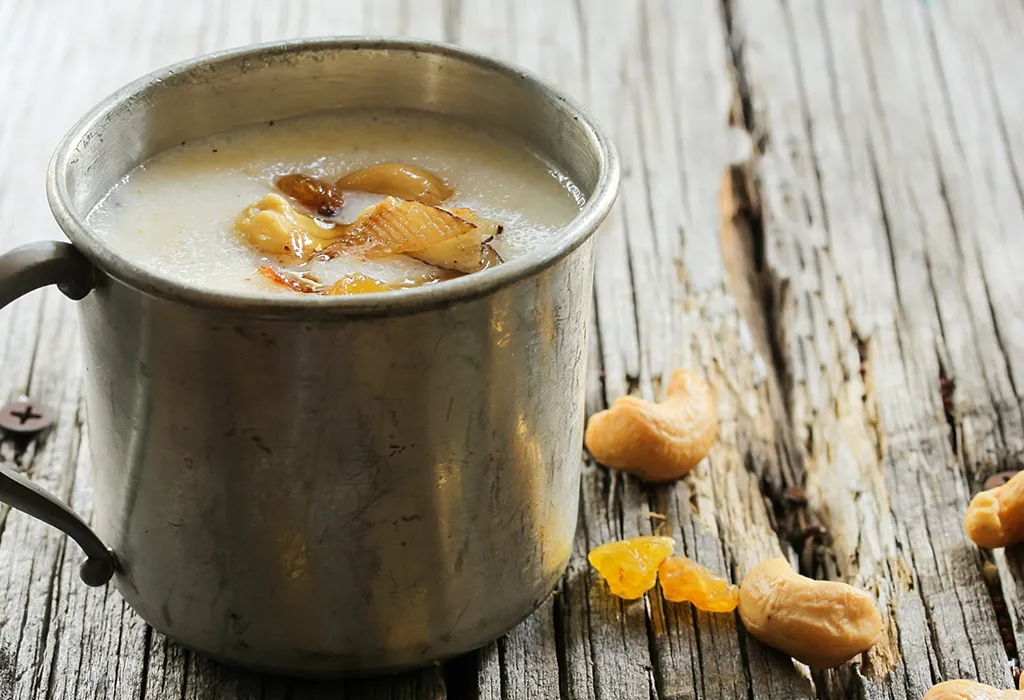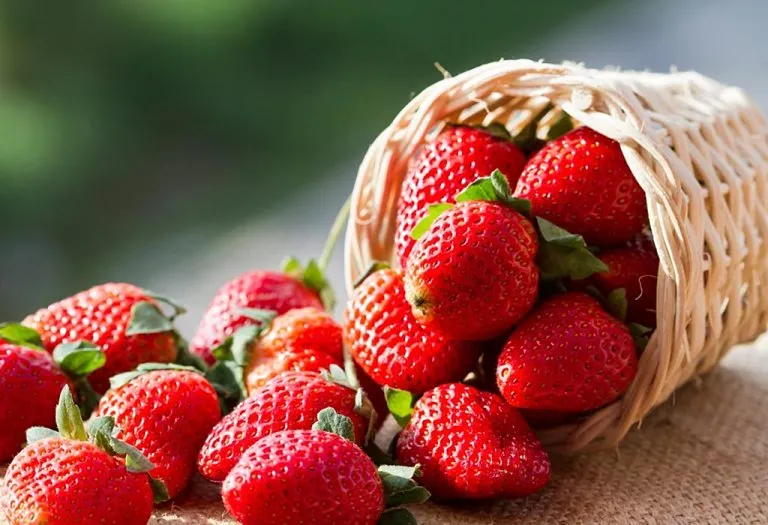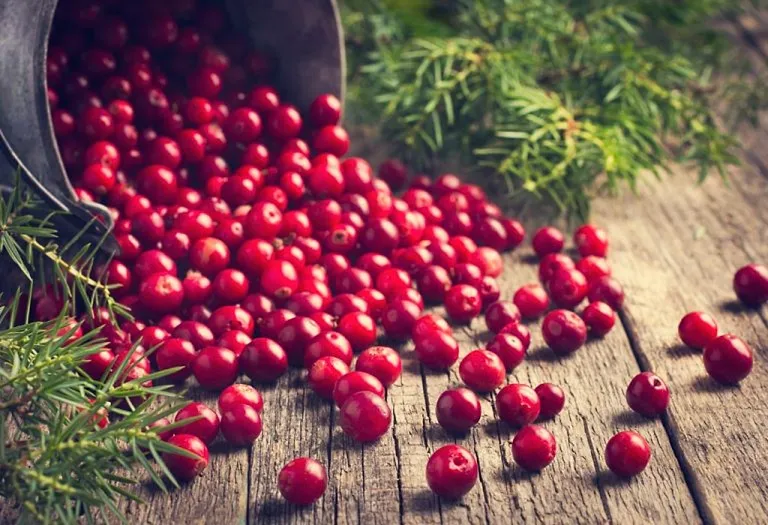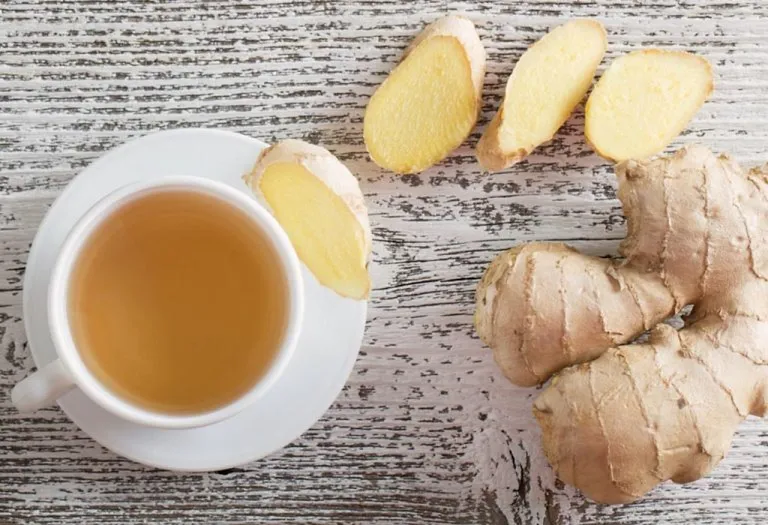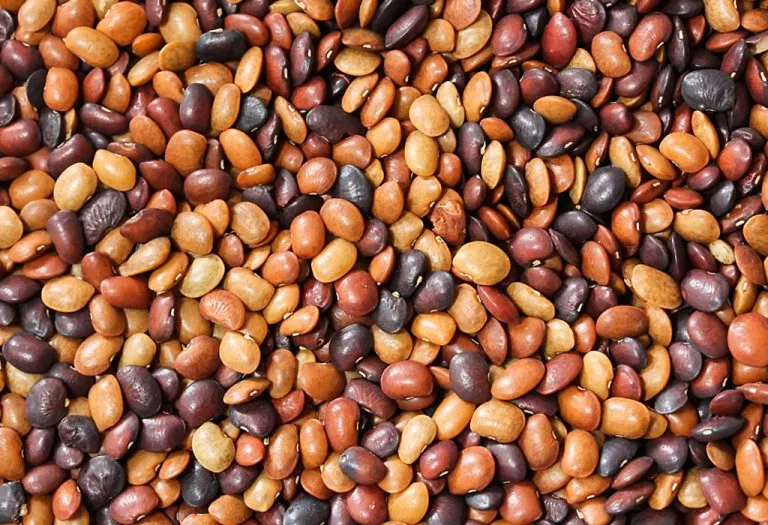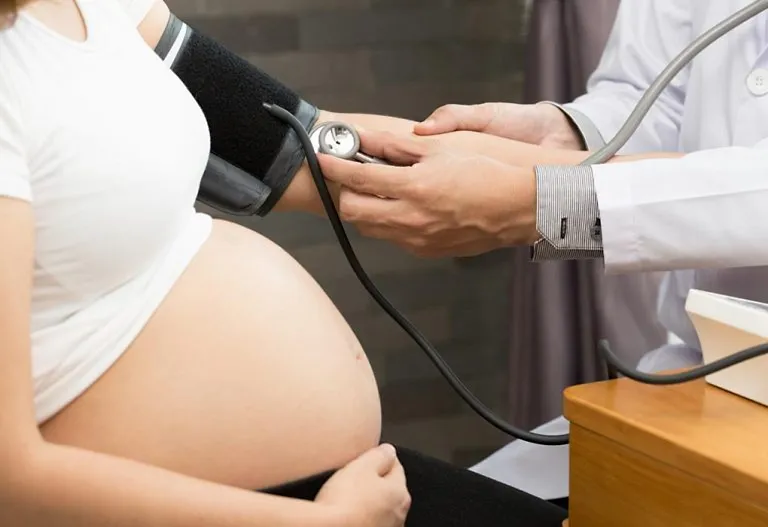Eating Ghee During Pregnancy – Benefits, Risks & Myths

Ghee is one of the main ingredients used for cooking in India. When a woman is pregnant, she is often told to consume ghee, especially by the elders of the family, as it is believed to assist vaginal delivery (though there is no scientific study to prove the same). But is it good to eat ghee during pregnancy? Separating fact from fiction amidst the myriad of opinions and myths surrounding clarified butter in pregnancy is essential for expectant mothers to make informed decisions about their dietary choices. Read on to discover all you need to know about consuming ghee in pregnancy.
Is it Safe to Eat Ghee During Pregnancy?
It is a known fact that a balanced diet and nutrition are of utmost importance for a pregnant woman. During pregnancy, a woman also needs to consume healthy fats. Ghee is a source of fats and thus can be included in a pregnant woman’s diet. However, it should be consumed only after consulting with a doctor.
Consumption of Ghee in the Third Trimester
In the third trimester, some believe that eating ghee might irritate the bowels and trigger contractions, helping to start labour. It’s also thought to make delivery smoother by lubricating the vagina. However, there’s no scientific proof for these claims. Still, its rich nutrient profile, including healthy fats and vitamins, may support your baby’s growth and development.
Benefits of Eating Ghee During Pregnancy
Ghee is rich in Omega-3 and omega-9 fatty acids, vitamins, minerals, and antioxidants. It has many health benefits, but its benefits in pregnancy are not scientifically proven. However, in Indian culture, ghee is believed to benefit a pregnant woman in the following ways.
- It may provide relief from constipation during pregnancy.
- It may help in the development of a baby’s brain.
- It helps improve a woman’s digestion (4).
- It helps nourish the baby.
- It helps ease the labour.
- It supports healthy weight gain during pregnancy.
- It aids in the absorption of fat-soluble vitamins essential for fetal development.
Homemade ghee is a better and healthier option than ghee or clarified butter purchased from the market. You may begin consuming desi ghee in pregnancy’s first trimester (1), but if you are concerned that you will gain too much weight or if you are already overweight, it is recommended that you include desi ghee in your diet only after consulting with your doctor.
How Much Ghee Can Pregnant Women Eat?
Pregnant women can consume ghee in moderation as part of a balanced diet. One to two teaspoons per day is considered reasonable, but individual needs may vary (5). Consult a doctor or a nutritionist to determine the appropriate amount based on specific health conditions and dietary requirements during pregnancy.
Is Ghee Really Necessary for Pregnant Women?
Diet plays a vital role in pregnancy. An expecting mother must eat a well-balanced diet to provide good nutrition for her growing fetus. It is believed that ghee lubricates the vagina and helps in normal delivery. It is also believed to ease labour pain and effectively stimulate contractions. However, these beliefs are not supported by any scientific evidence. A pregnant woman only requires 350 extra calories to cater to the nutritional needs of the growing fetus. These additional calories can be obtained by eating a good diet, including ghee. However, consumption of ghee in large quantities may lead to weight gain. If weight gain is a concern, you should avoid consuming ghee excessively.
Side Effects of Consuming Ghee During Pregnancy
While ghee is often regarded as a healthy addition to one’s diet, especially during pregnancy, it’s essential to understand its potential side effects and limitations. Here’s a breakdown of the side effects associated with consuming ghee during pregnancy:
- Ghee is calorie-dense, and excessive consumption during pregnancy may contribute to unhealthy weight gain, raising the risk of gestational diabetes and other health issues.
- Consuming ghee during pregnancy can lead to elevated cholesterol levels due to its high saturated fat content, increasing the risk of heart disease and related complications (2).
- Ghee is rich in vitamin A, and over-consumption during pregnancy can lead to an excessive intake of this vitamin, potentially causing congenital disabilities in the baby.
- Consuming ghee alongside prenatal supplements may interfere with absorbing certain vitamins and minerals essential for a healthy pregnancy.
- Improperly prepared or stored ghee may contain harmful bacteria or toxins, posing a risk of foodborne illness to the pregnant woman and her baby.
Therefore, it is advisable to consult your doctor before including ghee in your diet.
How to Include Ghee in Your Pregnancy Diet?
Incorporating ghee into your pregnancy diet can provide essential nutrients and healthy fats that benefit your and your baby’s development. Here are some simple ways to include ghee in your meals during pregnancy:
- Use ghee instead of regular cooking oils or butter to add flavour and nutritional benefits to your dishes.
- Spread a small amount of ghee on whole-grain toast or crackers as a healthy snack.
- Add a teaspoon of ghee to your warm beverages, such as herbal tea or warm milk, for added richness and nutrition.
- Ghee can be used in baking recipes for added moisture and flavour. For example, it can be used to grease baking pans or incorporated into cookie or cake recipes.
These strategies can help you enjoy the benefits of ghee while maintaining a balanced and nutritious pregnancy diet.
Myths Associated With Eating Ghee While Pregnant
There are several myths associated with eating desi ghee in pregnancy. It is tasty and healthy, but many people believe that drinking milk with ghee added to it can provide extra nutrition and calories to the pregnant woman and her unborn child. It is also believed that it aids the birthing process by lubricating the vagina. Many people think that including ghee in the pregnancy diet in the ninth month helps in normal delivery (3). However, these are just myths, so don’t add ghee to your diet because you like the taste. If you wish to eat ghee during pregnancy, you can, but only after consulting with your doctor.
FAQs
1. Can consuming ghee during pregnancy affect the baby’s development?
Yes, consuming ghee during pregnancy can positively affect the baby’s development. Ghee is rich in fat-soluble vitamins and healthy fatty acids, which support fetal growth and development, including brain development.
2. How does the quality of ghee impact its suitability during pregnancy?
The quality of ghee can significantly impact its suitability during pregnancy. Homemade or ghee from trusted sources may be preferred due to better control over ingredients and processing methods. High-quality ghee is less likely to contain additives or contaminants, ensuring a safer option for pregnant women.
Ghee for pregnant ladies is often considered a valuable addition to their diets, providing essential nutrients and healthy fats that support maternal and fetal health during pregnancy. You should seek expert medical advice whenever you plan to make any dietary changes during pregnancy. Your doctor may recommend the best food options for you.
References/Resources:
1. Simplify Your Pregnancy with Ayurveda; Art of Living Retreat Center; https://artoflivingretreatcenter.org/blog/simplify-your-pregnancy-with-ayurveda/; August 2020
2. Sharma. H, Zhang. X, Dwivedi. C; The effect of ghee (clarified butter) on serum lipid levels and microsomal lipid peroxidation; PubMed Central; https://www.ncbi.nlm.nih.gov/pmc/articles/PMC3215354/
3. 5 Pregnancy Precautions and the Truth Behind Them; Sitaram Bhartia Institute of Science and Research; https://www.sitarambhartia.org/blog/maternity/pregnancy-precautions/; May 2018
4. Sindhuja. S, Prakruthi. M, Manasa. R, Shekhara. N, Shivananjappa. M; Health benefits of ghee (clarified butter) – A review from ayurvedic perspective; IP Journal of Nutrition, Metabolism and Health Science; https://www.ipinnovative.com/journal-article-file/12521
5. Ghee: Your lifelong companion to good health; Art of Living Retreat Center; https://www.artofliving.org/in-en/ayurveda/tips/ghee-ayurvedic-holy-medicine
Also Read:
Eating Cheese in Pregnancy
Eating Paneer during Pregnancy
Consuming Jaggery while Pregnant
Consuming Peanut Butter in Pregnancy
Is It Safe to Consume Butter when Pregnant?
Was This Article Helpful?
Parenting is a huge responsibility, for you as a caregiver, but also for us as a parenting content platform. We understand that and take our responsibility of creating credible content seriously. FirstCry Parenting articles are written and published only after extensive research using factually sound references to deliver quality content that is accurate, validated by experts, and completely reliable. To understand how we go about creating content that is credible, read our editorial policy here.






